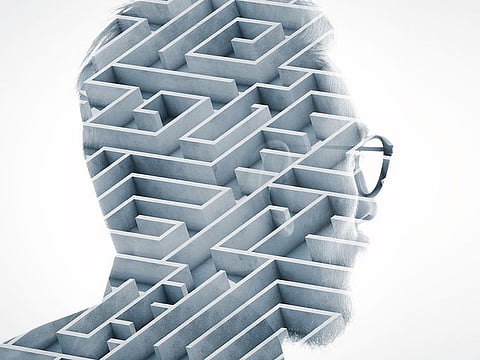Millennials: The therapy generation?
Youngsters are letting go of the stigma attached to mental issues.

Youngsters are letting go of the stigma attached to seeking professional help when it comes to mental issues and talking openly about their well-being. While many believe that normalising the need to get psychatric assistance is progressive, there are some who say it might make people “too dependent”. Gulf News readers debate
Different upbringing
Youngsters are open to sharing their personal issues
Millennials grew up with social media and technology during their formative years and sharing private and personal details about themselves is something that is seen as common practice amongst this generation. This could be one of the main reasons why they are more open to seeking psychotherapy. Other reasons could include that technology has really helped break down stigmas, as well as make therapy accessible in the last decade or that they are simply more distressed than the generations before.
Whereas, their parents might have seen depression and anxiety as taboo subjects to speak about or even acknowledge, millennials have seen and heard celebrities, royalty, politicians and common persons all ‘come out’ and speak openly struggling with mental health difficulties. This makes it far easier to own and accept that they too are struggling. And this is important because the fact is that millennials are struggling, and they are experiencing mental health difficulties far more than the generations before them. So, when they are finally ready to seek help, millennials have access to many formats of therapy than the traditional face-to-face therapy session. Apps, websites, teletherapy, chat therapy all make it affordable and for the millennial to seek help without boundaries.
From Dr Saliha Afridi
Clinical psychologist based in Dubai
More accessible
Technological progress has provided outlets for mental help
In this modern era of technology, we should celebrate the successes of the 21st century, individuals who have broken stigmas in major domains of life, making it easier and paving the way for other generations to follow as well.
Previously the stigma attached to going to a rehabilitation centre, receiving psychiatric aid and attending workshops promoting mental health awareness is slowly decreasing. In fact, within some groups of society it has become a trend and ‘fashionable’ to seek mental help.
As a result, seeking therapy has now become more convenient, accessible and has been normalised. For example, when a celebrity talks about mental health it trends on platforms like Twitter. There are even mobile phone applications with therapists a tap away, connecting with millions of people at a time.
We see that millennials are innovators of major breakthroughs in today’s age; with greater societal pressure to be the best of the best, have led them to falling prey to mental health issues as depression, social anxiety and anorexia nervosa to name a few. It is great that they are open to seeking help.
From Ms Emen Ali
Pupil based in Ajman
Too sensitive
Depending on therapy too much can hinder self growth
For years society has stigmatised the idea of mental illness. However, the current generation finds it much more acceptable.
Is this a sign of progress? Perhaps on some level, however I think the current generation has become more coddled than previous ones. People are more sensitive to topics that offend and that had been showcased by outrage for almost anything that goes against their beliefs and ideals. This could feed into the need to go to therapy as they think that they are misunderstood or that they have an issue that they may not even have.
Therapy can be an important tool, however it really depends on what it is for, not everything needs a trip to a therapist and incorrectly, using therapy can just propagate more people who are overly dependent.
Recognising that mental illness is a real thing is a great step in the right direction. However, using therapy as a crutch anytime your feelings get hurt or because you think things are harder than they are, can be detrimental to one’s self growth.
From Mr Louis Martin Antoun
Account executive based in dubai
Poll results
Gulf News asked: Are youngsters more comfortable with seeking mental help?
Yes: 46%
No: 54%
Have your say
Has receiving mental help become more acceptable?
Sign up for the Daily Briefing
Get the latest news and updates straight to your inbox



